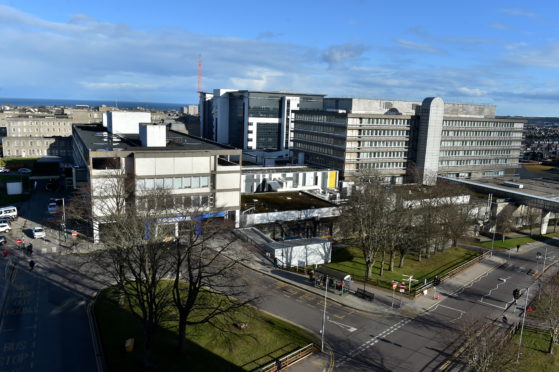Health bosses have ploughed more than £90,000 into a study on how to prepare hospitals for a future where coronavirus remains a threat.
Experts from Aberdeen University and NHS Grampian are teaming up for the project, which has been funded by the north-east health board.
Scientists, clinicians and biomedical engineers will map out a set of requirements which facilities should operate by to ensure they remain as safe as possible.
They will take into account how the virus spreads, the previous needs of different patients who have been diagnosed with Covid-19 and how the changes in lockdown measures could impact on hospitals.
It is hoped that the model they come up with will help staff to deal with a range of scenarios, and factor into any future infrastructure plans that hospitals wish to proceed with.
Data has been gathered from north-east patients who have already been admitted during the crisis.
Dr Dimitra Blana from the university explained how such a study will be a “valuable tool” as NHS Grampian continues to respond to the pandemic.
He said: “This pandemic has forced rapid changes across the NHS to care for Covid-19 patients.
“The NHS must now balance the needs of Covid-19 patients with the care it has always provided. Our team is trying to create tools to support this care planning in NHS Grampian.
“It is impossible to predict what will happen, but using local data we can help to build a picture of how different factors feed into the clinical needs of Covid-19 patients.
“This new local model will be used to make predictions of what care patients in Grampian will need – building in scenarios such as a jump in the R number or changes in public behaviour.
“This model then will the allow NHS Grampian to see how the Covid-19 outbreak develops, and respond to changes as quickly as possible to ensure there are beds, staff, and equipment where they are needed for both Covid and non-Covid patients.”
One of the possible scenarios faced by NHS staff is the potential for a second wave.
The research could provide information on whether that would require a need for more beds and staff to remain devoted to fighting the virus, or whether resources can be distributed back in to the day-to-day running hospitals.
The cash for the project came from the NHS Grampian endowment fund, and its operations manager, Sheena Lonchay, added: “Our trustees agreed at the start of the pandemic to support research into Covid-19 and are delighted to award research funding of £91,000 towards the university’s data modelling project.”
